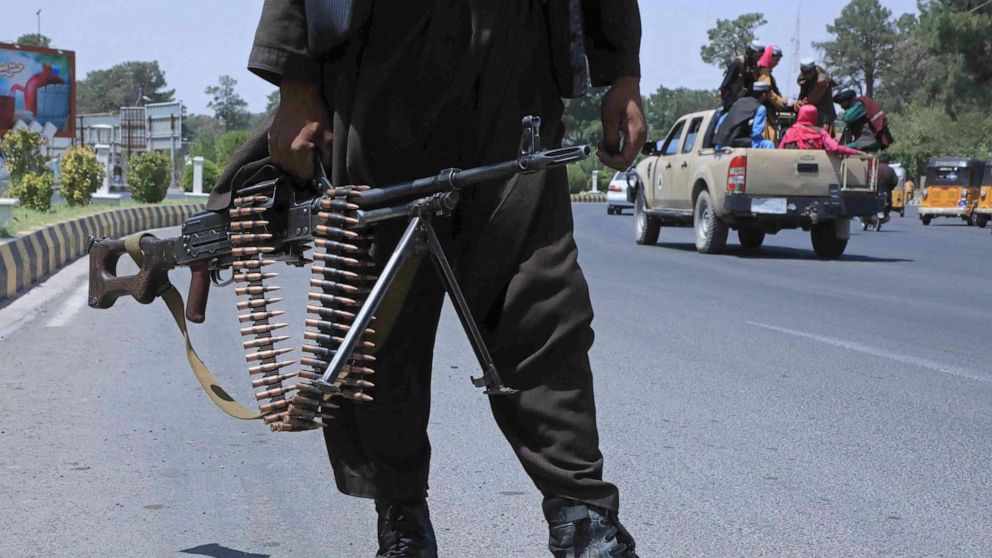Taliban at presidential palace to negotiate transfer of power
A delegation of Taliban leaders is at the presidential palace in Kabul, the capital of Afghanistan, after the movement's forces overran the nation's army and gained quick surrenders across the country.
The leaders are there to negotiate a transfer of power, Taliban spokesperson Zabiullah Mujahed told ABC News on Sunday.
The Taliban entered the outskirts of the city early Sunday and fighters were seen gathering in the Kabul districts of Kampany and Barchi, a local reporter confirmed to ABC News. Officials told the Associated Press that there were also Taliban fighters in the districts of Kalakan, Qarabagh and Paghman.
A Taliban spokesperson told ABC News that Taliban leaders have ordered their men not to take over Kabul by force for now but to remain "at the gates" of the capital.
"Negotiations are underway with the other side to ensure that the transition process is completed safely and securely," the spokesperson said. "No one's head, property or honor will be harmed and the lives of Kabulis will not be in danger. The Islamic Emirate instructs all its forces to stand at the gates of Kabul and not try to enter the city."
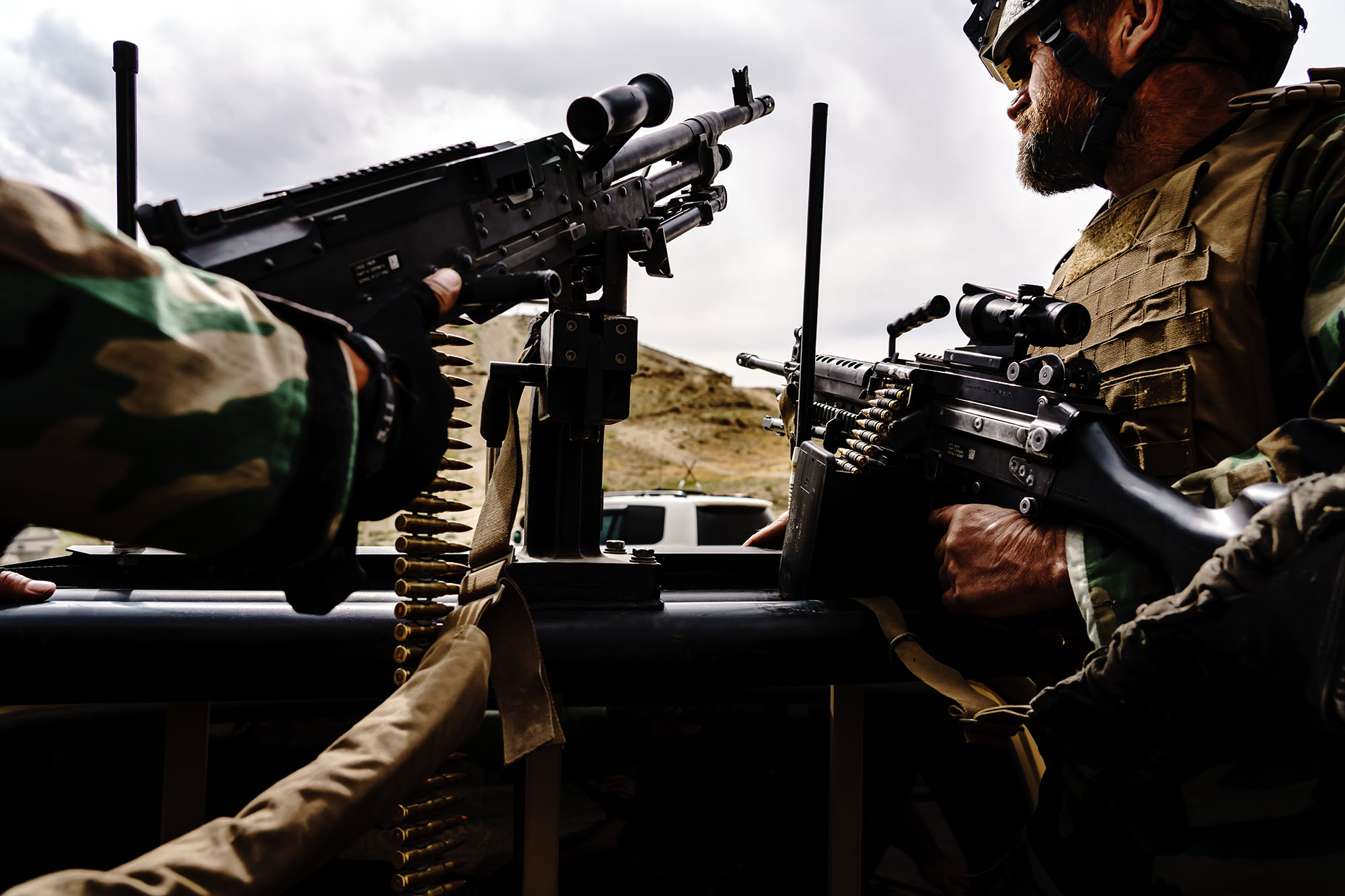
Jalalabad became the latest major city to fall on Sunday local time, cutting off the capital from the east, according to Taliban spokesman Zabihullah Mujahid and The Associated Press.
With the capture of Jalalabad, the Taliban now controls eight of the 10 largest cities in the country. Kabul, the largest by far, and Charikar, only about 40 miles north of the capital, are the only ones remaining out of Taliban hands.
The anti-Taliban stronghold of Mazar-e-Sharif, the capital of Balkh province, fell on Saturday, according to Mujahid and the AP, following an assault by insurgent forces.
Also on Saturday, the Taliban captured all of Logar province, just 7 miles south of Kabul, and Asadabad, the capital of Kunar province, the AP reported.
As the latest cities fall, President Joe Biden announced he would be sending more troops to Kabul to facilitate the "orderly and safe drawdown" of U.S. personnel, allied forces and Afghan civilians who helped with the war effort. Instead of heading to Kuwait as previously planned, 1,000 troops from the 82nd Airborne will head directly to Kabul, the president said in a lengthy statement Saturday afternoon.
Also on Saturday, the State Department started moving embassy personnel in Kabul from the compound to the city's international airport for evacuations, according to U.S. officials, and embassy staff have been told to prepare for the embassy's closure, ABC News has learned.
For now, the embassy remains open, but the situation on the ground is shifting rapidly and a final decision is expected to be announced soon.
If the compound is closed, a small core of diplomatic personnel are expected to remain in the country at the airport, which is heavily fortified and from which they can quickly be evacuated.
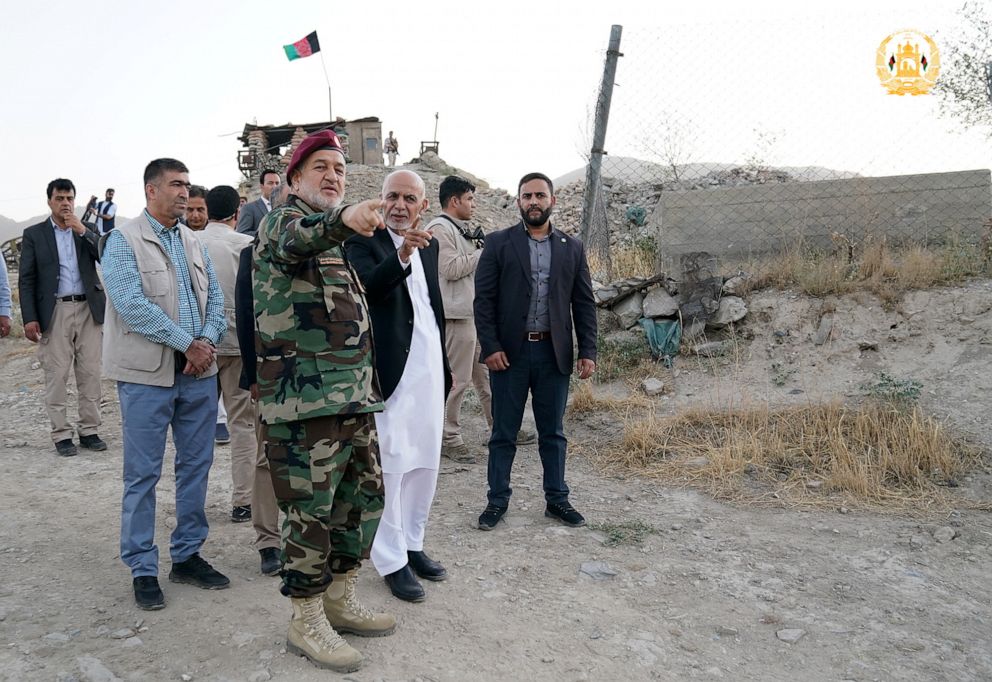
In a televised national address Saturday, Afghan President Ashraf Ghani rejected suggestions he might resign in his first appearance since the rapid offensive, saying his focus is to "prevent further instability, violence and displacement of our people."
"Therefore, I have started extensive consultations inside the government, with the elders and political leaders, representatives of people from all walks of life and our international partners," he said. "Swift consultations in this regard are going on and the results will soon be shared with you, my dear compatriots."
The Taliban have demanded that Ghani resign in exchange for a reduction in violence and to lay the groundwork for a transitional government. But Ghani has said he is the democratically elected leader of the country and will remain so until negotiations between the Taliban and Afghan government reach a conclusion -- an increasingly distant reality.
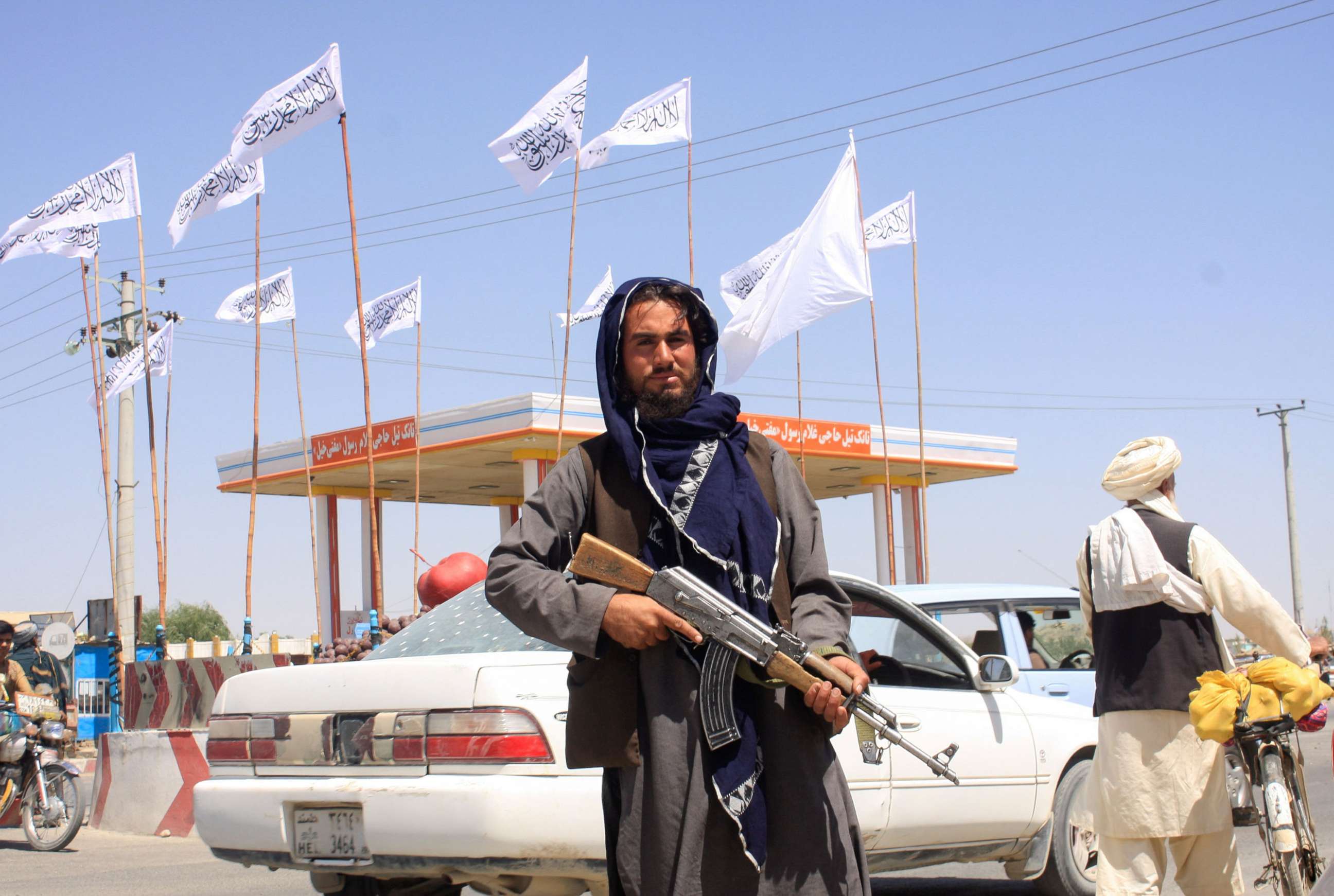
US troops deployed to reduce embassy staff
Meanwhile, the U.S. State Department said Friday it would begin reducing its staff levels at the U.S. Embassy in Kabul and the Pentagon was sending in troops "as we speak" to help facilitate those departures.
Pentagon press secretary John Kirby wouldn't say the Taliban's advances took the Biden administration by surprise but said officials are "certainly concerned" by the speed at which the Taliban is moving.
"We're obviously watching this just like you're watching this and seeing it happen in real-time, and it's deeply concerning. In fact, the deteriorating conditions are a factor -- a big factor -- in why the president has approved this mission to help support our -- the reduction of personnel there in Kabul," he said in a briefing from the Pentagon Friday afternoon.
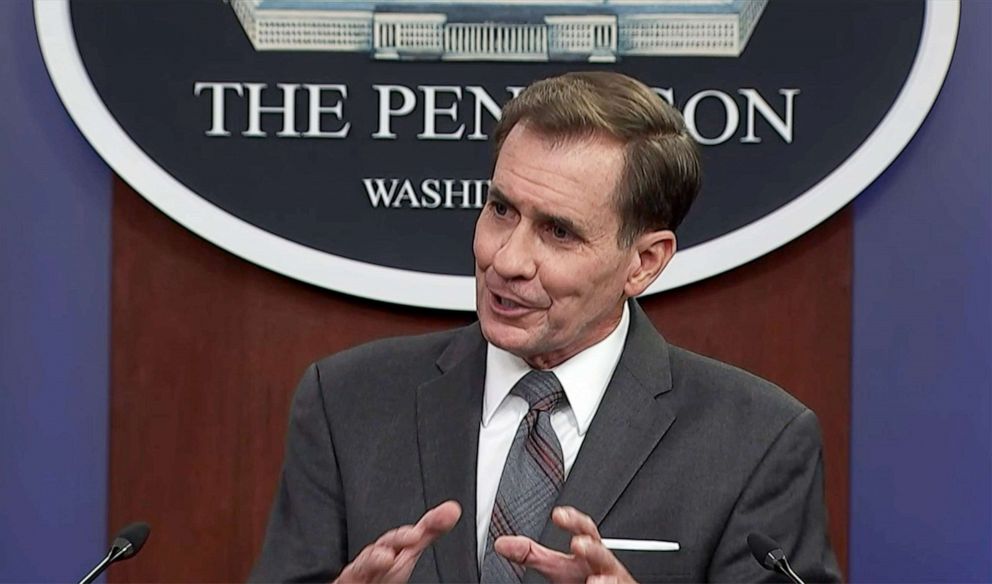
Kirby said the "leading elements" of one of the two Marine battalions headed to Kabul had arrived and that "the bulk" of the 3,000 troops would be there by the end of the weekend.
The Taliban pressuring major Afghan cities was a significant factor in the decision to go forward with the reduction in embassy staffing and the new military mission, a U.S. official told ABC News.
A military analysis said Kabul could be isolated in 30 to 60 days and captured in 90 days, a U.S. official told ABC News. That timeline seemed even more accelerated Thursday as the Taliban claimed Herat, Afghanistan's third-largest city. As of Friday, the Taliban had taken control of Kandahar, the country's second-largest city, located 300 miles south of Kabul and considered the birthplace of the Taliban. The Taliban had also seized Lashkar Gah, the capital of Helmand province.
The U.S. Embassy in Kabul has urged Americans to evacuate Afghanistan immediately, amid fears that the capital could fall into Taliban hands in a matter of weeks.
"Clearly from their actions, it appears as if they are trying to get Kabul isolated," Kirby said of the Taliban at the Pentagon Friday afternoon.
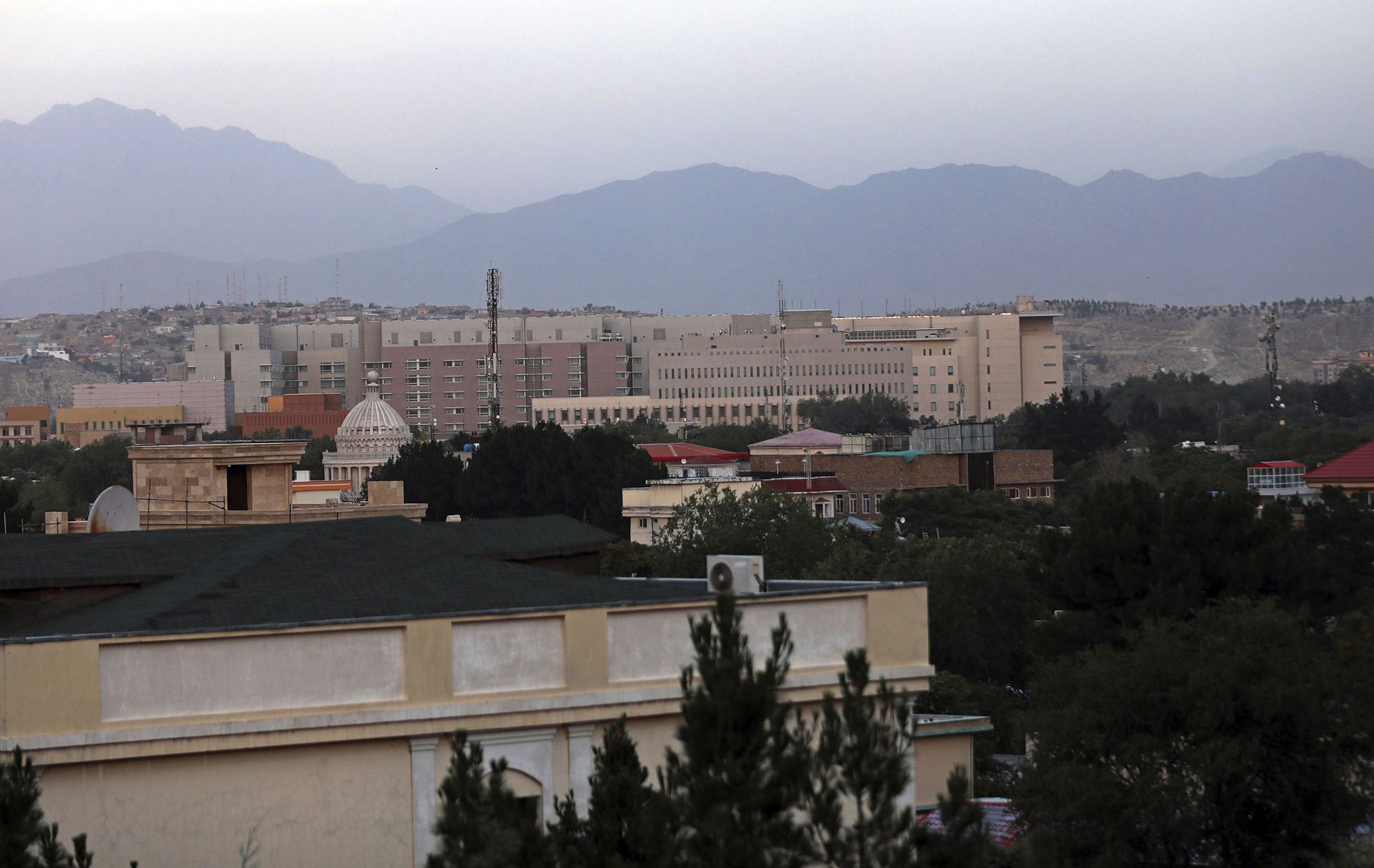
In a security alert issued Saturday, the U.S. Embassy in Kabul announced it is considering evacuation flights for American citizens in Afghanistan as the Taliban approach the capital.
Commercial flights are still operating, "but seats may not be available," the alert said, and advised U.S. citizens to register with the embassy for repatriation flights for themselves and any non-citizen spouses or children under the age of 21.
Afghans who have U.S. citizen children, but are not citizens themselves, may be forced to choose to send their children off without them: "If you do not have appropriate travel documentation [like a valid U.S. visa], please identify an individual who currently has valid travel documentation who could accompany your U.S. citizen minor," the alert said.
State Department Spokesman Ned Price said the embassy in Kabul will remain open as it reduces its civilian footprint due to the "evolving security situation." He added that the embassy expects to draw down to a core diplomatic presence in Afghanistan.
"What this is not -- this is not abandonment. This is not an evacuation. This is not the wholesale withdrawal," Price said Thursday. "What this is, is a reduction in the size of our civilian footprint. This is a drawdown of civilian Americans who will, in many cases, be able to perform their important functions elsewhere, whether that's in the United States or elsewhere in the region."
The U.S. Embassy in Kabul has instructed all U.S. personnel to destroy items like documents and electronic devices to "reduce the amount of sensitive material on the property," according to an internal notice obtained by ABC News.
"Please also include items with embassy or agency logos, Americans flags, or items which could be misused in propaganda efforts," the notice said.
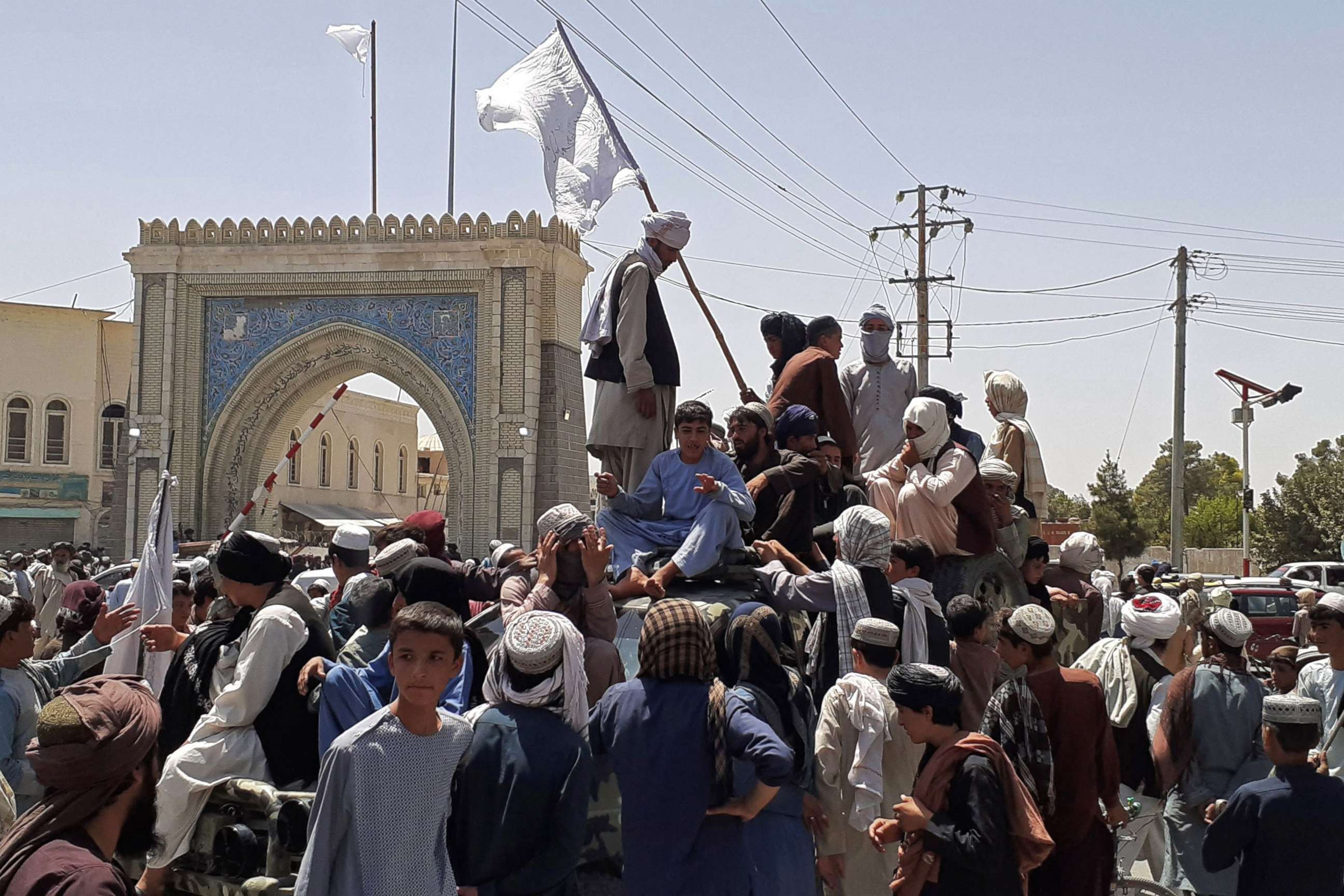
A State Department spokesperson did not deny this was the case, but in a statement described it as "standard operating procedure designed to minimize our footprint."
In addition to the U.S. troops heading to Kabul, 1,000 personnel were being sent to assist with the processing of Afghans who worked as interpreters, guides and other contractors and applied for Special Immigrant Visas (SIV).
"I want to stress that these forces are being deployed to support the orderly and safe reduction of civilian personnel at the request of the State Department and to help facilitate an accelerated process of working through SIV applicants," Kirby said Thursday.
Biden and Vice President Kamala Harris were briefed by the national security team by video conference Saturday morning regarding the evacuation of Americans and SIV applicants from Afghanistan, according to the White House.
In a statement Saturday afternoon, Biden said the White House has conveyed to the Taliban that "any action on their part on the ground in Afghanistan, that puts U.S. personnel or our mission at risk there, will be met with a swift and strong U.S. military response."
The president's statement said that in addition to authorizing 5,000 troops to assist with the "drawdown" of U.S. and allied personnel and the "evacuation" of certain Afghans, he had ordered armed forces and intelligence "to ensure that we will maintain the capability and the vigilance to address future terrorist threats from Afghanistan," directed Secretary of State Antony Blinken to support "Ghani and other Afghan leaders as they seek to prevent further bloodshed and pursue a political settlement" and placed Ambassador Tracey Jacobson in charge of the effort to "transport, and relocate Afghan special immigrant visa applicants and other Afghan allies."
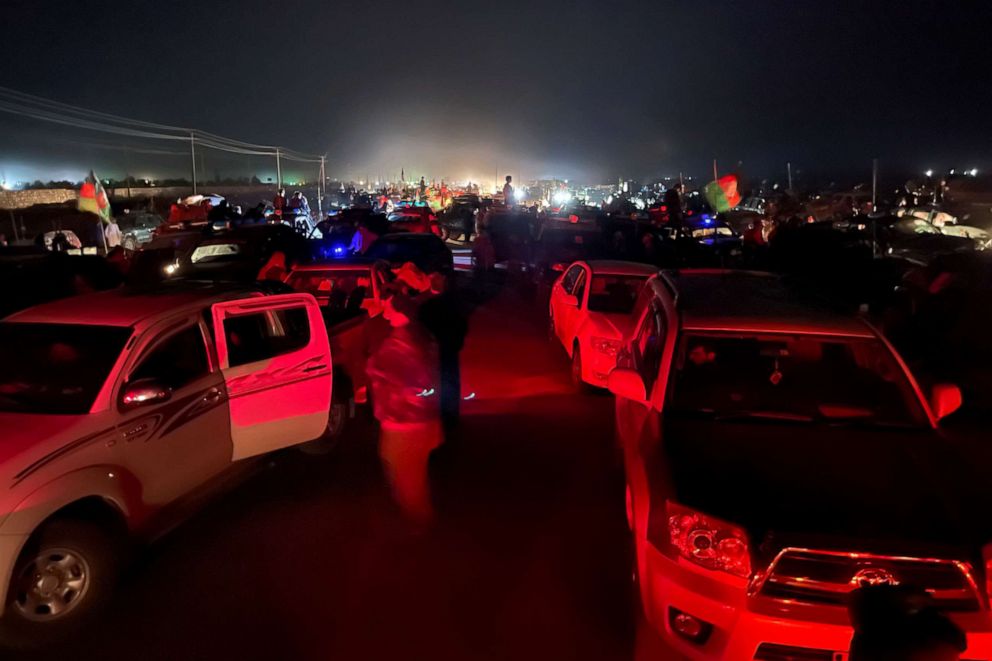
Among the 5,000 troops cited by Biden are 1,000 soldiers from 82nd Airborne initially intended to go to Kuwait, a defense official told ABC News. The remaining brigade of 2,500 soldiers will still head to Kuwait to preposition in case they are needed.
There are also 1,000 troops already in Kabul, the official said, including the 650 protecting the airport and the embassy.
Kirby called it a "very temporary mission for a very temporary purpose," and said the DOD expects to keep no more than 1,000 troops in Kabul to protect the airport and embassy after the Aug. 31 deadline -- up from the 650 troops originally set to remain.
Price said officials will continue to relocate qualified Afghans who assisted the American mission, such as interpreters and others who worked for the U.S. government, and flights will ramp up in the coming days.
"Our hearts go out to the brave Afghan men and women who are now at risk. We are working to evacuate thousands of those who helped our cause and their families," Biden said in his statement Saturday, noting that the administration to working to relocate SIV applicants and "other Afghan allies."
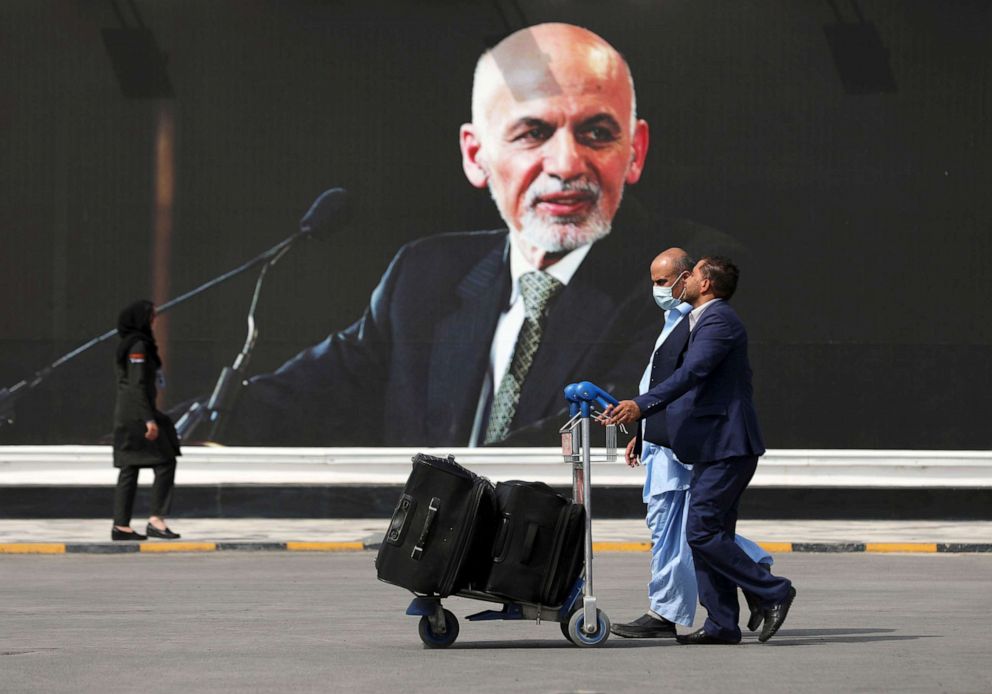
The United Kingdom is also sending military personnel -- about 600 paratroopers -- to Kabul on a short-term basis to provide support to British nationals leaving the country, according to a joint press release from the Ministry of Defence and Foreign, Commonwealth and Development Office. The number of staffers working at the British Embassy in Kabul has been reduced to a core team focused on providing consular and visa services for those needing to rapidly leave the country.
U.K. Defense Secretary Ben Wallace said Friday he believed the country was "heading towards a civil war" as the Taliban gain momentum.
Other nations were working to reduce their embassy staff, including Germany and Spain. The Danish Embassy in Kabul will be closing, and Italy’s defense minister said Friday evening that the country was reviewing embassy security in the capital.
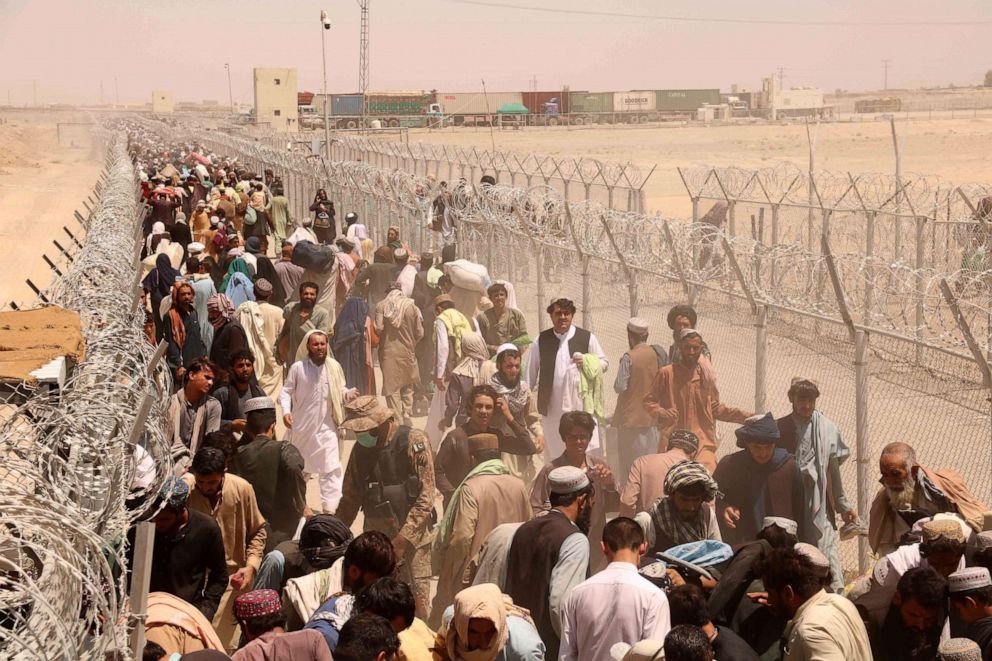
'Immense' human toll
Amid the Taliban's advance, tens of thousands of Afghans have fled their homes to avoid living under the insurgents' rule.
Mick Mulroy, a former deputy assistant secretary of defense, a senior fellow for the Middle East Institute, Afghanistan war veteran and ABC News national security analyst, called on the U.S. to reverse its decision to withdraw troops in order to "prevent the country's fall to the Taliban and the establishment of a safe haven for terrorist organizations."
"In the absence of that, the international community must immediately establish a secure, fortified area within the Kabul region where Afghans, especially females, fleeing the Taliban can have their own safe haven," he said Friday.
"This should also come with a clear warning to the Taliban that if they enter the Kabul region, they will be met by military force from the United States," he added. "This is the only thing they will understand and likely the only thing that will stop them from an assault on Kabul that will cause a major humanitarian crisis."
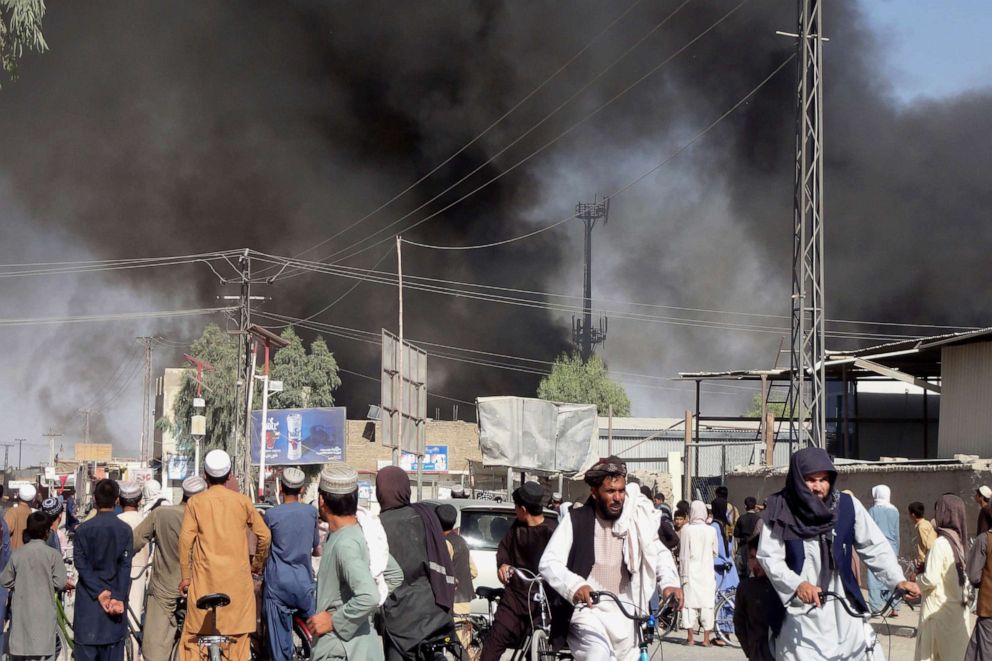
Shabia Mantoo, a spokesperson for the United Nations High Commissioner for Refugees, warned Friday at a press conference in Geneva that a worsening humanitarian crisis is unfolding in Afghanistan.
"The human toll of spiraling hostilities is immense. The United Nations Assistance Mission has warned that without a significant de-escalation in violence, Afghanistan is on course to witness the highest ever number of documented civilian casualties in a single year since the UN's records began," she said.
U.N. Secretary-General António Guterres called for a cease-fire in remarks on Friday.
"The message from the international community to those on the warpath must be clear: seizing power through military force is a losing proposition," he said. "That can only lead to prolonged civil war or to the complete isolation of Afghanistan."
According to the U.N., some 400,000 civilians have been forced to flee from their homes since the start of the year, joining 2.9 million Afghans already internally displaced across the country at the end of last year, she said.
ABC News' Cindy Smith, Justin Gomez, Molly Nagle and Sohel Uddin contributed to this report.
